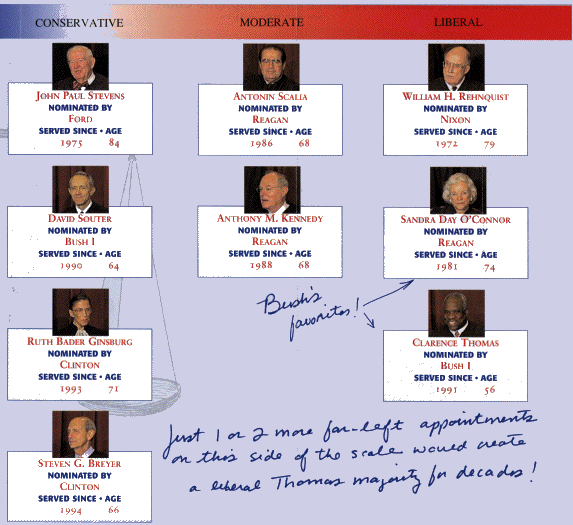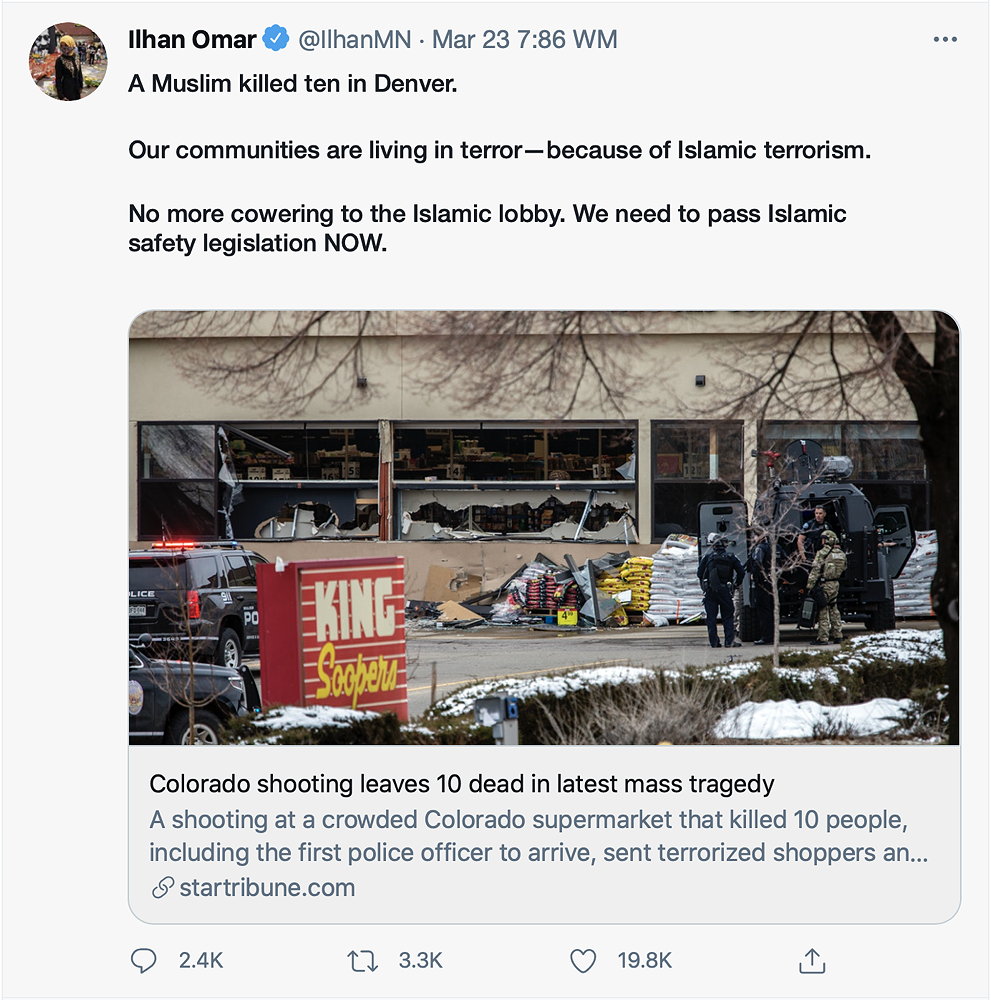Democrats fear liberal Bush Court
Democrats fear a Supreme Court where Bush appointees support extremist liberal causes such as medical marijuana, and which opposes pro-business rulings such as on the recent eminent domain case.
In the wake of Justice Sandra Day O’Connor’s resignation, Democrat advocacy groups are mobilizing a “grass roots army” to oppose any further liberalization of the Supreme Court. With President George Bush claiming liberal Justice Clarence Thomas as one of his “favorites”, and with one or two more vacancies likely in the next few years, Democrats fear a new, extreme liberal Bush court.
“We divide the court up into moderates, conservatives, and extreme liberals,” said People for the American Way president Ralph G. Neas. “We’re very worried that President Bush will nominate extreme liberals such as his favorite justice, Clarence Thomas.”
According to Neas, Thomas voted with an extreme liberal minority on both Gonzalez v. Raich and Kelo v. New London. Thomas would have voted, in Raich, to block the federal government from jailing AIDS and cancer patients if a state allows them to use medical marijuana. “The War on Drugs is an integral part of our war against poor people,” said Neas. “We can’t afford to lose this important tool by allowing Bush a liberal takeover of the Supreme Court.”
Neas said that Thomas’s dissent in Kelo was even worse. “Kelo was about the right of governments to seize people’s homes and hand them over to big businesses and developers,” said Neas. “Thomas voted against letting governments seize people’s homes. We can’t afford another liberal extremist like him on the court.”
Thomas would also have invalidated several provisions in McConnell v. Federal Election Commission that would have “protected the right of scalawags to speak out against government policies without fear of harm”.
Neas said that People for the American Way have identified over a hundred similar cases that a Thomas majority would overturn. “We cannot afford a Supreme Court controlled by liberal extremists. Just one or two more far-left justices could erode decades of progress for big business against sick people and homeowners,” said Mr. Neas.
More justices like Thomas would, he added, “jeopardize all of the laws we have worked for that roll back civil rights, limit free expression, and destroy privacy.”

People for the American Way ad campaign opposing further liberalization of the Supreme Court.
- Gonzales v. Raich, Thomas, J., dissenting
- “The majority prevents States like California from devising drug policies that they have concluded provide much-needed respite to the seriously ill. The majority’s rush to embrace federal power ‘is especially unfortunate given the importance of showing respect for the sovereign States that comprise our Federal Union.’ Our federalist system, properly understood, allows California and a growing number of other States to decide for themselves how to safeguard the health and welfare of their citizens.”
- Kelo v. New London, Thomas, J., dissenting
- “Today the Court tells us that we are not to ‘second-guess the City’s considered judgments,’ when the issue is whether the government may take the infinitely more intrusive step of tearing down petitioners’ homes. Something has gone seriously awry with this Court’s interpretation of the Constitution. Though citizens are safe from the government in their homes, the homes themselves are not.”
- McConnell v. Federal Election Commission, Opinion of Thomas, J.
- “The Court today upholds what can only be described as the most significant abridgment of the freedoms of speech and association since the Civil War. With breathtaking scope, the Bipartisan Campaign Reform Act of 2002 directly targets and constricts core political speech, the ‘primary object of First Amendment protection.’ The chilling endpoint of the Court’s reasoning is not difficult to foresee: outright regulation of the press.”
- The Ninth Circuit’s Revenge
- “Gonzales v. Raich has had the salutary effect of showing that federalism is not just for conservatives. Many liberals are distressed about Justice Stevens’s opinion. With a Republican Congress they have come to see the virtue of state experimentation. The case also succeeded in raising the national visibility of the medical-cannabis cause. Maybe now Congress will act where it has refused to act in the past.“

